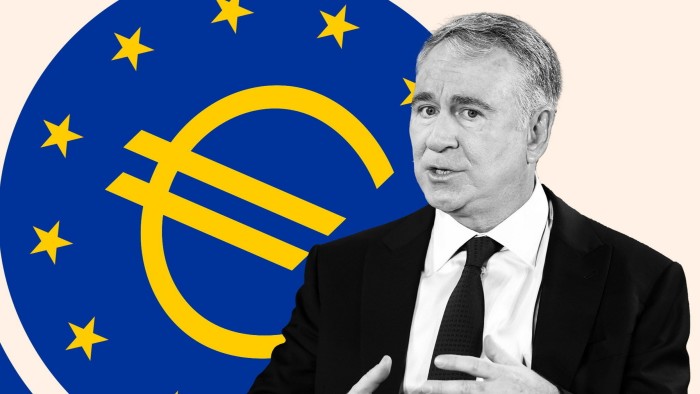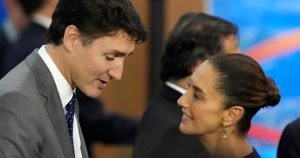Citadel Securities aims to become big player in Eurozone bond trading

Unlock the Editor’s Digest for free
Roula Khalaf, Editor of the FT, selects her favourite stories in this weekly newsletter.
Citadel Securities is aiming to become a “material” player in Eurozone government bond trading by next year after building a team of traders in Paris and securing valuable access to German debt auctions.
The Miami-based high-speed trading firm founded by billionaire Ken Griffin is already a major participant in the US Treasury market and is now targeting a similarly prominent role in Europe.
In September, Germany added Citadel Securities to the list of companies that were allowed to buy the country’s debt directly at its regular auctions — a move widely viewed as an implicit blessing that the market maker plans to use as a beachhead to expand its presence, according to senior executives at the firm.
“We want to be a material player in European rates markets and believe our efforts complement the EU’s renewed commitment to deepening and integrating its capital markets,” Michael de Pass, Citadel Securities’ head of rates trading, told the Financial Times.
“Europe’s market structure remains fragmented and resistant to new entrants, but we’re focused on building our business incrementally and deliberately,” he added.
The firm recently established a team of six traders at its new continental European hub in Paris. They will start to trade German Bunds in the coming weeks, but Citadel Securities expects this to grow swiftly as more markets are gradually added, according to people familiar with the firm’s plans.
Citadel Securities’ entry into European government bond trading — a market that for centuries has been dominated by local and regional banks — highlights the growing ambitions of algorithm-driven trading firms and the subtle changes taking place in the fabric of fixed-income markets.
High-frequency traders have been dominant players in most developed stock markets for more than a decade, but firms such as Susquehanna International Group, Jump Trading, Jane Street and Citadel Securities have in recent years expanded aggressively in markets long considered less hospitable to their technology-driven approach.
However, some critics say that the liquidity these specialist traders provide can prove ephemeral at times of turbulence, when the difference between the prices they quote for buying or selling can balloon. Sceptics argue that these trading firms therefore make markets more fragile, pointing to the increasing number of “flash crashes” and “flash rallies” across markets in recent years.
A 2019 paper by the European Central Bank found that “when an increase in high-frequency trading is accompanied by high-frequency trading competition, HFTs use more speculative trading strategies and, as a result, liquidity deteriorates and short-term volatility rises”.
European banks have also urged caution. In a report on European bond markets earlier this year, the International Capital Market Association, a trade body, said “the speed at which markets become volatile — the ‘volatility of volatility’ — has increased, possibly aided by greater transparency and more dependence on e-trading and automation”.
Nevertheless, there has been a growing acceptance among some European technocrats and policymakers that the region’s bond markets need to be developed to help better fund the debt burdens of many countries, and to finance investments in climate change mitigation and defence.
Mario Draghi, former ECB head and Italian prime minister, made overhauling the eurozone’s bond market a central plank of his competitiveness strategy for Europe.
The European Securities and Markets Authority, the EU financial watchdog, is already in the process of setting up a so-called consolidated tape that would register and make public the price of every single bond trade across the Eurozone.
This is likely to be a boon for tech-oriented trading firms such as Citadel Securities, which thrive on analysing large quantities of data, and attract more investors to the market, the trader’s executives argue.
“There’s dramatic underappreciation for what greater liquidity and transparency would mean for Europe’s bond markets,” said Shyam Rajan, global head of fixed income at Citadel Securities.
“The journey towards greater competitiveness and the ultimate goal of a EU capital markets union starts with encouraging broader participation and liquidity in sovereign bond markets.”
#Citadel #Securities #aims #big #player #Eurozone #bond #trading




